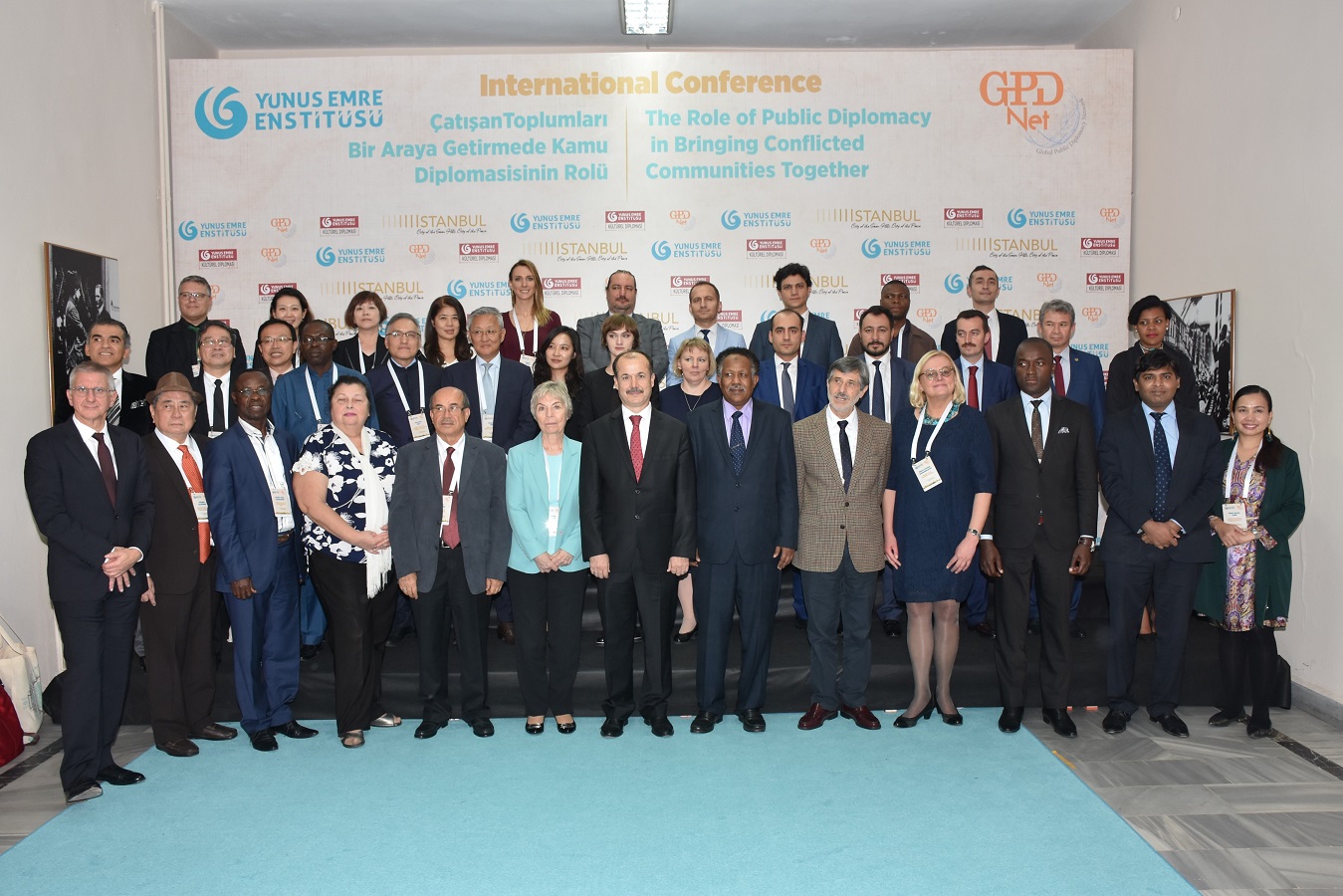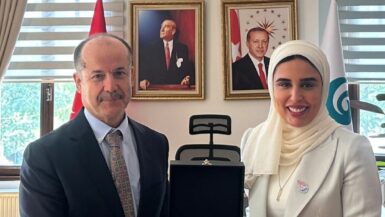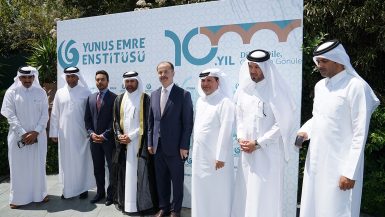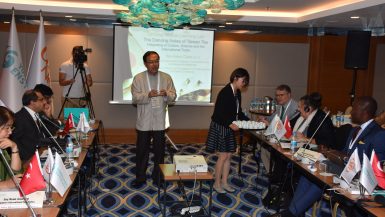Fourth General Board Meeting of the Global Public Diplomacy Network (GPDNet) under the term presidency of Yunus Emre Institute, started in Istanbul. Prof. Dr. Şeref Ateş Chairman of Yunus Emre Institute who spoke at the opening of the program on the historical peninsula that has been the meeting point of cultural diversities for hundreds of years said: “In this era of communications, cultural public diplomacy is a must for different cultures to better understand each other.”
The Global Public Diplomacy Network which was established in 2014 with a view to developing bilateral and versatile projects in the field of public and cultural diplomacy and ensuring exchange of information between countries started its fourth General Board Meeting in Istanbul on Thursday 19 October under the term presidency of Yunus Emre Institute. On the first day of the General Board Meeting where representatives from Sweden, Hungary, Poland, Portugal, Taiwan, Singapore, the Philippines, South Korea, Nigeria, Qatar, Mozambique, Lithuania, Belarus and Pakistan were present, an international conference on “The Role of Public Diplomacy in Bringing Conflicting Communities Together” and a forum on “The Future of Public Diplomacy” were held.
Prof. Dr. Şeref Ateş Chairman of Yunus Emre Institute who spoke at the opening of the program noted that the technology that has particularly advanced in the last two decades had mostly affected communication channels and underlined that inter-cultural communications had never been as important as they are now.
“Cultural Diplomacy will Bring Peace to the World”
Prof. Dr. Ateş talked about the bridges that culture and arts build in transnational diplomacy and said GPDNet was undertaking a very important mission in this context. Prof. Dr. Ateş also noted that diplomacy, too, was diversifying in the ever developing world and cultural diplomacy was increasingly becoming more significant among the traditional diplomacy channels, Ateş mentioned GPDNet’s works and said: “GPDNet is a structure that brings together international civil initiatives through information and experience exchange. Rather than restraining the world with concepts such as Far East, Middle East or the West which have long lost their geographical meaning and become completely politicized, GPDNet will be serving to the notion of cultural diplomacy which aims to create a unique garden of civilisations where all products blossoming in another geography, no matter if it is far or near can come together freely. He said “We organised many festivals, workshops and exhibitions to raise awareness on cultural heritages and their preservation as well as other events to strengthen transnational bonds”. In this regard, our first international conference is actually taking place today. During our office as the Term President for three years we aim to continue supporting these projects and strengthen this network by increasing the number of members so that we can grow even further.”
“The Only Thing That Can End Hate Crimes is the Cultural Diplomacy”
As a part of the program where cultural diplomacy and the culture of living together were discussed, Yunus Emre Institute’s Cultural Diplomacy Academy coordinated an international conference on “The Role of Public Diplomacy in Bringing Together Conflicting Societies” with the participation of academics from world’s leading universities and respectable field experts.
Journalist and Political Scientist Brigitte Nacos from the Columbia University who spoke at the conference delivered a presentation on the importance of public diplomacy in the age of communications. Nacos who touched upon the cartoon crises of Charlie Hebdo said when societies did not understand and know the cultural values of each other, they were not noticing the hate crimes they were committing or the unspoken violence happening. Nacos also emphasised that not speaking about cultural sensitivities was in fact leading to bigger conflicts and normalising racist narratives and hate crimes.
One other speaker, Neville Bolt, Head of Communications Centre at King’s College talked about the role of public diplomacy in communications and the importance of social media. He remarked that knowing your own culture only was not enough and that one had to acquire information to influence his/her behaviours. Bolt said in today’s world public diplomacy diplomats had become electronic emissaries collecting data. Also expressing that public diplomats were people who understood their own country’s culture, Bolt ended his speech by some words from the Rumi: “now, it is time to say new things”.
Conference continued with the presentations of Bekir Karlığa from the Alliance of Civilisations and Luis Palma Castillo from the Ministry of Defence of Chile. In his presentation Castillo said, apart from connecting people social media platforms had become an instrument for both states and other actors that raised awareness in social and political issues. He remarked that if public diplomats managed this instrument correctly, they could make very valuable contributions to humanity. The first day of the meeting ended with the well-attended forum on “The Future of Public Diplomacy” and a family photo.











